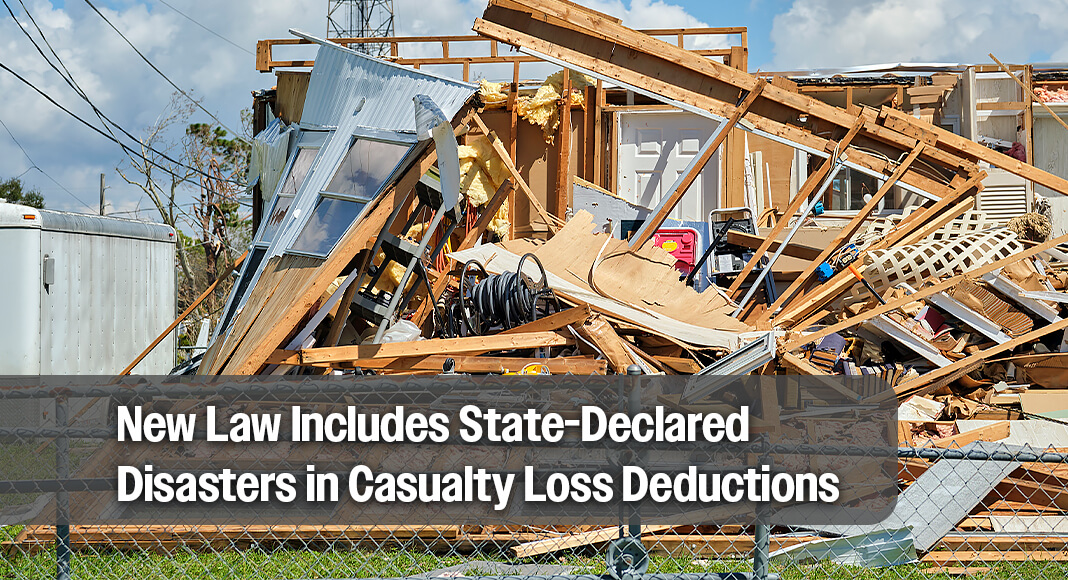
Mega Doctor News
Texas Border Business / Mega Doctor News
On July 4, 2025, the ONE BIG BEAUTIFUL BILL (OBBB) was signed into law, introducing several tax-related changes, including an expansion of the rules for claiming casualty losses. Under the new law, individuals may now deduct losses resulting from state-declared disasters, not just federally declared ones. This change is designed to help more taxpayers recover from the financial impact of natural and man-made disasters.
Before the OBBB was passed, the Internal Revenue Code allowed individuals to claim casualty losses on their federal income tax returns only if the loss occurred in a federally declared disaster area. This often left taxpayers unable to deduct losses if their state declared a disaster but the federal government did not. The OBBB changes this by adding state-declared disasters to the list of qualifying events for casualty loss deductions.
The bill states: “Casualty loss provisions shall be amended to permit deduction of losses sustained in disasters declared by a state authority, in addition to those declared by the President of the United States.” This means that if a state governor officially declares a disaster in accordance with state law, residents affected by that disaster may be eligible to deduct their losses on their federal taxes.
The change applies to losses sustained on or after January 1, 2025, and will remain in effect until December 31, 2029. Taxpayers who experience a state-declared disaster during this period can claim their eligible losses even if the federal government does not issue a disaster declaration for that event.
Casualty losses generally refer to damage, destruction, or loss of property from sudden, unexpected, or unusual events such as floods, wildfires, hurricanes, or earthquakes. To claim a deduction, taxpayers must itemize their deductions and reduce the total loss by any insurance or other reimbursement received. Additional limits may apply based on income levels and the value of the loss.
The inclusion of state-declared disasters could be especially significant for residents in areas that frequently face emergencies not always recognized at the federal level. For example, wildfires, flash floods, or winter storms that receive a state disaster declaration may now qualify under the updated rules.
This provision is not permanent. The five-year time window allows Congress to assess the impact of the change and determine whether to make it a lasting part of tax law in the future.
The IRS is expected to issue further guidance on how to document and claim losses under the expanded rules. Taxpayers affected by a state-declared disaster are advised to keep all relevant records, including insurance claims, repair estimates, photographs, and copies of the official state disaster declaration.
By allowing deductions for a broader range of disasters, the ONE BIG BEAUTIFUL BILL aims to offer financial relief to more Americans recovering from property loss. The expansion recognizes that significant disasters can occur even without federal recognition and ensures that more taxpayers can access support when they need it most. Always consult with a tax professional
See related stories:









